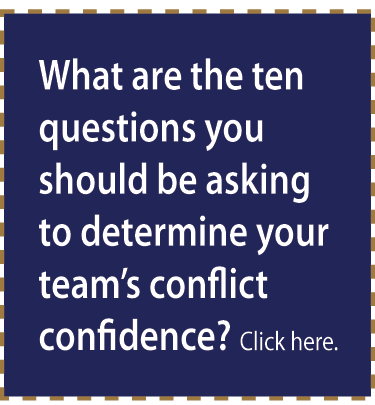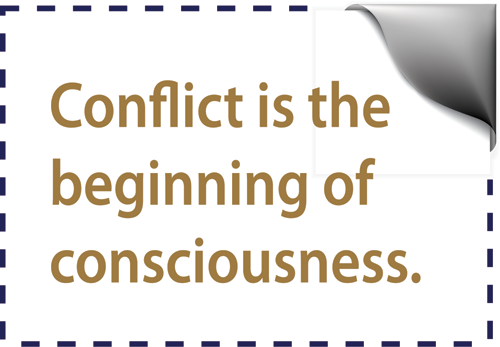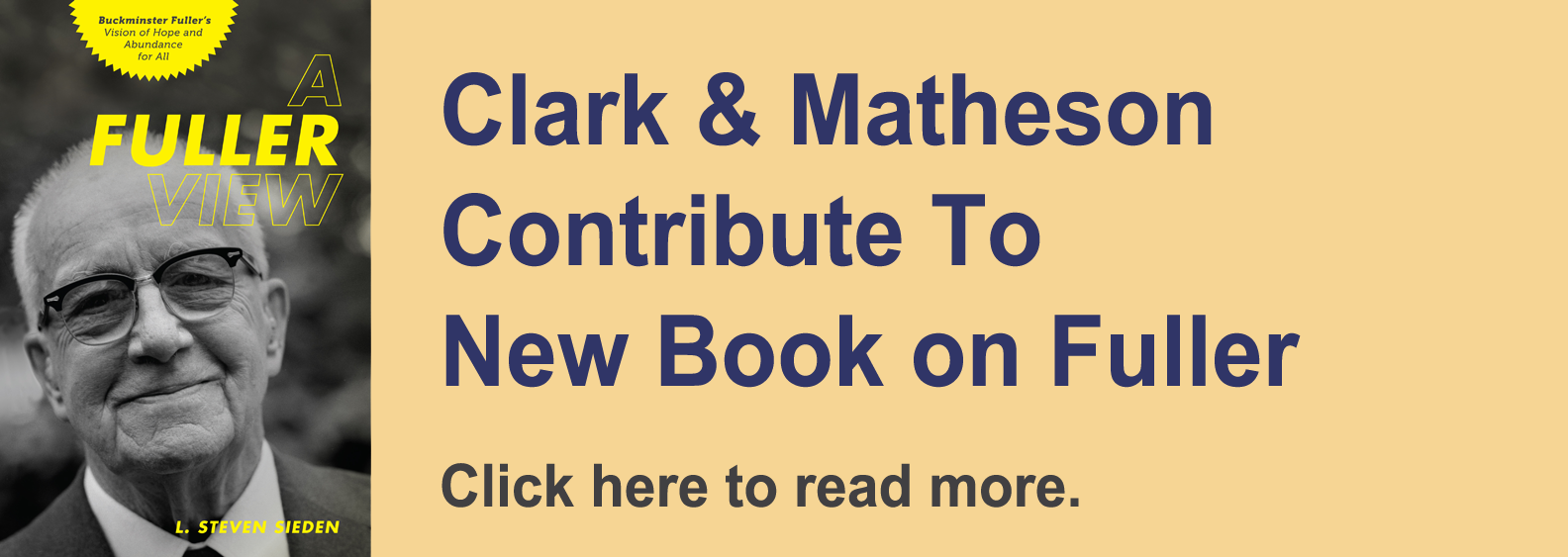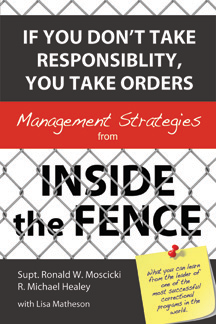Curricula Building Conflict Confidence
Most people think conflict is bad. We think just the opposite. Conflict is necessary – without it there would never be a new idea and nothing would change.
Because for a new idea to be considered, someone has to disagree with the status quo. It's the most basic form of conflict.
Conflict supports healthy teams to evolve.
We help teams develop conflict confidence because without it, they can be very dysfunctional.
On the other hand, teams with high levels of Conflict Confidence are drama-free. They make good decisions. They build consensus and they create a feeling of value which engages team members.
Conflict can contribute to constructive growth by:
Conflict just is. The difference is the process by which it is addressed. And the process for working through conflict constructively can be learned.
In the first category are teams who have open conflict. On a constructive-destructive scale, some will be at one end or the other. If this is your team, no matter where you are on the scale, you can always improve your Conflict Confidence skills to become more productive.
What's more challenging are teams in the second category – teams that deny that they have conflct. It's usually not true, because it's impossible to have a group of people who agree all the time on everything.
The conflict on these teams is covert. It's underground. Direct conversations don't take place. No one will confront another person or their ideas directly. But, behind closed doors, sub-groups of the team start talking. It's destructive and unproductive.
And this is where we can help.
Whether the conflict on your team is covert or open or anywhere on the scale in between, we can help you improve.
There are two components to improving a team's Conflict Confidence.
The primary issue is the culture of the team. We work with your team to create a culture with a mindset where conflict is embraced and recognized as a key contibutor to success.
We also work with you to build new skillsets that support conflict in being constructive, like teaching your team to recognize conflict flashpoints. We'll also focus on the preferred stylistic responses to conflict and how to manage them.
What are the results you'll see?
Your team will become an attractive and exciting place to be. You'll increase engagement and be able to mine all of the wealth – the resources – of the team members. You'll:
Talk to us.
Because for a new idea to be considered, someone has to disagree with the status quo. It's the most basic form of conflict.
Conflict supports healthy teams to evolve.
We help teams develop conflict confidence because without it, they can be very dysfunctional. On the other hand, teams with high levels of Conflict Confidence are drama-free. They make good decisions. They build consensus and they create a feeling of value which engages team members.
Conflict can contribute to constructive growth by:
- Exposing new ideas
- Identifying legacy processes that are no longer “best practices”
- Allowing innovation
- Finding, recognizing and incorporating agreement
- Understanding differing positions
- Embracing diversity
So, does that make all conflict good?
No. Conflict can be either constructive or destructive and it has nothing to do with the the actual issues.Conflict just is. The difference is the process by which it is addressed. And the process for working through conflict constructively can be learned.

What about creating conflict confidence on teams?
When we talk about conflict, we divide teams into two categories.In the first category are teams who have open conflict. On a constructive-destructive scale, some will be at one end or the other. If this is your team, no matter where you are on the scale, you can always improve your Conflict Confidence skills to become more productive.
What's more challenging are teams in the second category – teams that deny that they have conflct. It's usually not true, because it's impossible to have a group of people who agree all the time on everything.
The conflict on these teams is covert. It's underground. Direct conversations don't take place. No one will confront another person or their ideas directly. But, behind closed doors, sub-groups of the team start talking. It's destructive and unproductive.
And this is where we can help.
Whether the conflict on your team is covert or open or anywhere on the scale in between, we can help you improve. There are two components to improving a team's Conflict Confidence.
The primary issue is the culture of the team. We work with your team to create a culture with a mindset where conflict is embraced and recognized as a key contibutor to success.
We also work with you to build new skillsets that support conflict in being constructive, like teaching your team to recognize conflict flashpoints. We'll also focus on the preferred stylistic responses to conflict and how to manage them.
What are the results you'll see?
Your team will become an attractive and exciting place to be. You'll increase engagement and be able to mine all of the wealth – the resources – of the team members. You'll:- Drive innovative thinking and get more creative breakthroughs
- Increase productivity, by doing more faster, with fewer resources
- Improve job satisfaction ratings
- Get better decision making
- See real consensus (as opposed to faux) amongst members.
Talk to us.


